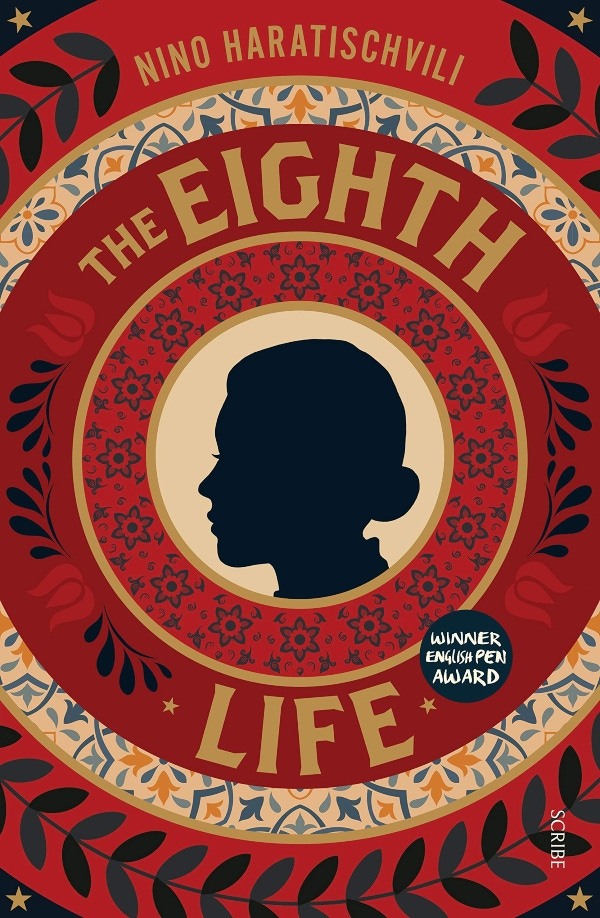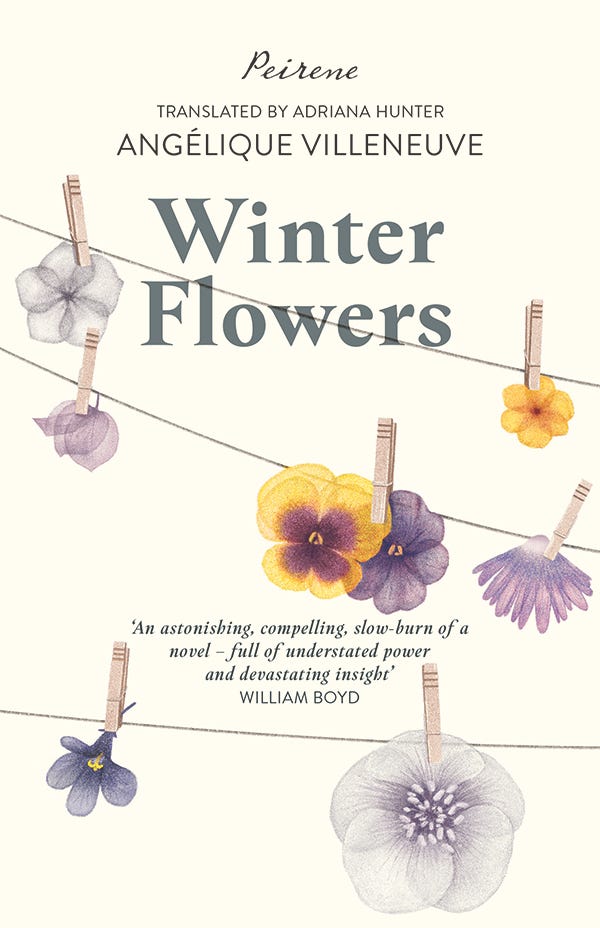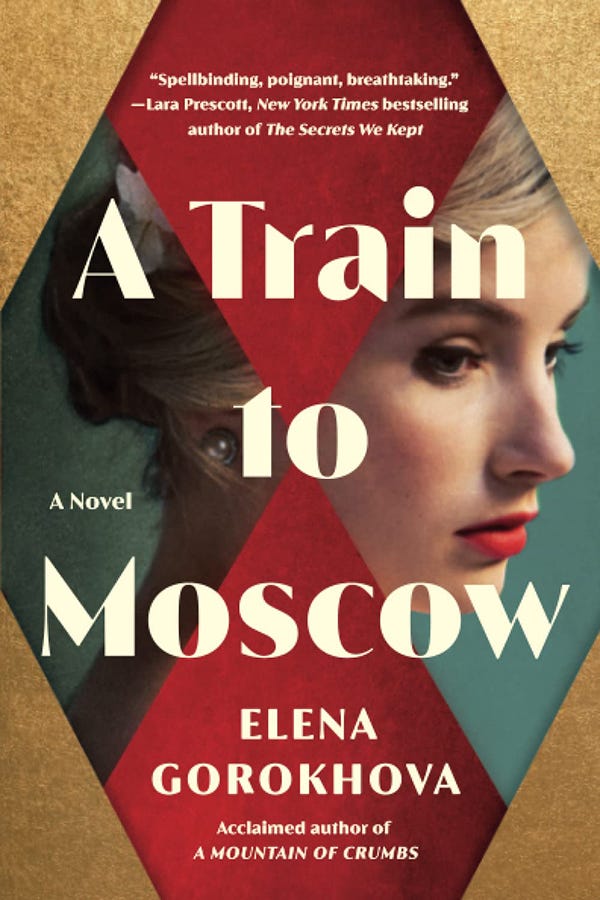Historical novels we've loved recently 📚🍎⏳
"The thing is, I don't think my husband expected me to be able to talk."
Our 2022 reading lists have been dominated by historical fiction. Here are the ones we’ve enjoyed the most, and the ones we’re looking forward to reading next.
The Eighth Life
It takes a lot for us recommend a book that’s pushing 1000 pages, but The Eighth Life is certainly no ordinary book. If you don’t bat an eyelid at a meaty Marian Keyes or you got caught up in Elena Ferrante’s Neapolitan novels, you’ll probably make light work of this epic family saga. Spanning the Russian Empire from the turn of the 20th century, the subject matter might sound heavy but the plot bounds along and it’s impossible not to get swept along. The novel focusses on six different members of the Jashi family and the stories intertwine beautifully, always with enough detail to keep you guessing. They prosper, they fall, they each make decisions with enormous consequences for their loved ones. There’s tragedy throughout the book, but so much love and magical prose that it catches you when you least expect it. Translated by Charlotte Collins and Ruth Martin, it’s one to pick up when, say, there’s a huge storm outside and you’ve no intention of moving from your favourite reading spot for several hours.
If you enjoyed this, you’ll also love: The Seven or Eight Deaths of Stella Fortuna and the first in Penny Vincenzi’s Spoils of Time trilogy. Start with No Angel.
Galatea
After reading such a large book, you’re going to need something of a palate cleanser. Madeline Miller’s short story Galatea might be small in stature – you’ll finish it before your tea has gone cold – but it really packs a punch. Inspired by Pygmalion, the story is about a woman carved from stone and brought to life by the gods. In true Madeline Miller style, it is about so much more and there’s a real weight to Miller’s recurring theme of women being silenced by controlling men. "The thing is, I don't think my husband expected me to be able to talk" is a line that travels much further than its source material. Miller excels in taking a piece of history and making it feel like it was written yesterday.
If you enjoyed this, you’ll also love: Pandora’s Jar and Circe.
Karitas Untitled
We love it when a book takes us deep into the history of a place and era we know little about, and Kristín Marja Baldursdóttir’s Karitas Untitled promises to do exactly that, transporting us to 20th century rural Iceland. Karitas is an artist who feels stifled by her life of herring-gutting and child-rearing and yearns for chaos and freedom and independence – an unconventional woman bound by convention. This isn’t a new book – the highly acclaimed Icelandic author published it in her home country in 2004 – but this translation by Philip Roughton brings it to English-speaking readers on March 1st, and we can’t wait to get to know Karitas and the wild Icelandic landscape that forms the backdrop to her story.
If you enjoyed this, you’ll also love: The Stars Are Not Yet Bells and Land of Snow and Ashes.
Winter Flowers
Don’t let the pretty cover mislead you – this little book deals with the far-reaching, devastating impact of World War I, centring on how one family pieces together their life in the aftermath of the conflict. Prize-winning French author Angélique Villeneuve’s poetic and powerful novel, beautifully translated into English by Adriana Hunter, tells the story of artificial flower maker Jeanne, her husband Toussaint, and their young daughter Léonie.
When Toussaint returns home in 1918, having spent two years being treated for terrible facial injuries in a military hospital, he is a changed man, emotionally and physically. He and Jeanne and Léo must find a way back to one another, their journey punctuated not just with love, hope and perseverance but with silence, too. Villeneuve and Hunter’s prose is nothing short of exquisite throughout – fellow writers, prepare to seethe with jealousy – but it’s particularly wonderful when conveying that silence. Winter Flowers will linger in your mind long after the last page.
If you enjoyed this, you’ll also love: The Murmur of Bees and The Lobotomist’s Wife.
The Dictionary of Lost Words
It was never going to be hard to get Sian to fall for a book about words and women in history doing things they weren’t expected to. The Dictionary of Lost Words has both of these things in abundance. Set in Oxford during the creation of the English Dictionary, Pip Williams’s novel tells the fictional story of Esme, who is captivated by the words that don’t make it into the dictionary – the words that are thought to be vulgar, or too shocking to write down. Words that are often used by women. Even as a child she knows that they have significance and takes it upon herself to collect them. Pip Williams charts Esme’s life with lyrical prose, asking whether words can have different definitions for men and women. And, if they do, what has been lost in defining them?
If you enjoyed this, you’ll also love: Blackberry and Wild Rose and The Familiars.
A Train To Moscow
Elena Gorokhova’s debut novel is ticking all our boxes before we even crack the spine – trains, Moscow, a rebellious red-lipsticked aspiring actress – but this is no flibbertigibbet of a book. The author’s previous two books are memoirs of her childhood growing up behind the Iron Curtain and her subsequent move to America, and A Train To Moscow borrows from her family history once more – the narrator, Sasha, is partly inspired by Gorokhova’s sister Marina. The story is set in postwar Soviet Russia, where young Sasha dreams of an acting career. She finally leaves on that train to Moscow to enrol at drama school, but secrets, sacrifice and struggles abound. Roll on March 1st, when the book is released and we can finally get stuck in.
If you enjoyed this, you’ll also love: A Gentleman in Moscow and A Life’s Music.
The Sin Eater
With its deeply unsettling descriptions of food, The Sin Eater isn’t an easy read. However, putting our discomfort aside, we’ve never read a novel that uses themes of female guilt around food in such a striking and imaginative way. Although the story takes place in a somewhat fictional 16th century England, it is based in history. Sin Eaters – often women found guilty of a crime – would consume a ritual meal to ‘eat the sins’ of the deceased. Their burden was to carry the sins with them throughout their life. (This sounds like an archaic practice, but it continued into the 20th century. England’s last known sin eater – Richard Munslow – died in Shropshire in 1906.) The depictions of food throughout Campisi’s novel aren’t pretty. Actually, in many places, they’re grotesque, but if that doesn’t turn your stomach you’ll be rewarded with a compelling novel that brilliantly explores the role of women’s guilt and punishment in society.
If you enjoyed this, you’ll also love: Little and The Language of Food.
This week, Laura loved the Ray Harryhausen exhibition in Edinburgh, and Sian has been signing copies of her book. Like our new look? Buy us a cuppa.










Wonderful interesting selection of books and suggested titles.